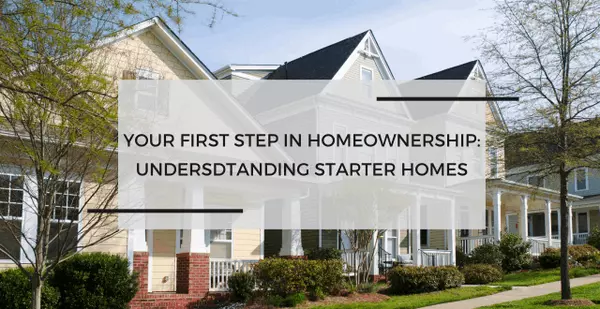
Your First Step in Homeownership: Understanding Starter Homes
Entering the world of homeownership can be an exhilarating yet daunting experience, especially for first-time buyers. One crucial concept that many potential homeowners encounter is the idea of a "starter home." But what exactly is a starter home, and how does it differ from a forever home? Is it worth considering one as your first investment? Let’s delve into these questions and explore the current real estate landscape. What Is a Starter Home? A starter home is generally defined as an entry-level property that is affordable for first-time homebuyers. These homes are often smaller in size and may need some renovations, but they serve as a launchpad into the housing market. According to the National Association of Realtors, “Starter homes are typically modest in size and price, appealing to those looking to make a smart investment without breaking the bank.” In recent years, the definition of a starter home has evolved, particularly due to rising home prices. A survey by Homelight revealed that 64% of homeowners believe that buying a starter home is a smart way to enter the market. This sentiment reflects the understanding that starter homes provide an opportunity to build equity and transition into larger homes later. The Difference Between a Starter Home and a Forever Home The primary difference between a starter home and a forever home lies in the intent and longevity of ownership. A starter home is typically seen as a temporary residence—a stepping stone toward a larger, more permanent home. On the other hand, a forever home is the property where buyers envision settling down for the long term, often featuring additional space, amenities, and a location that suits their lifestyle. HousingWire points out that “A starter home may only meet immediate needs, while a forever home is designed to accommodate future plans and family growth.” This distinction is crucial for buyers as they evaluate their current and future living situations. Is It Worth Starting with a Starter Home? Absolutely! Starting with a starter home can be a smart financial decision. As the market continues to shift, many homebuyers find that they can build equity and gain experience in homeownership without taking on the risks associated with a more expensive property. Money.com highlights that “buying a starter home can provide an opportunity to build wealth over time, as home values generally appreciate.” This appreciation not only offers financial benefits but also allows homeowners to learn the ropes of property maintenance and management in a less overwhelming environment. Furthermore, the flexibility offered by a starter home can be advantageous. According to a recent report from US News, “Many first-time buyers can upgrade to their forever home within a few years, leveraging the equity gained from their starter home.” This upward mobility is an essential aspect of today’s housing market. Bottom Line: In conclusion, a starter home can be a fantastic option for first-time buyers looking to enter the real estate market. It offers the chance to build equity, gain experience, and set the foundation for future homeownership goals. If you’re considering making your first home purchase, The Vince Caropreso Team is here to help. Our expert team is dedicated to guiding you through the process and ensuring you achieve your home buying goals. Contact The Vince Caropreso Team today to learn more about available starter homes in your area and start your journey toward homeownership!
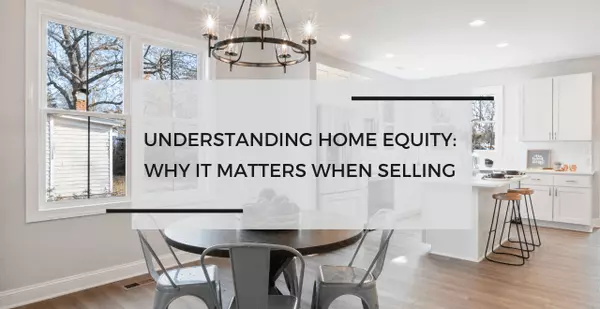
Understanding Home Equity: Why It Matters When Selling Your Property
Home equity is often referred to as your home’s hidden wealth, a powerful financial tool that many homeowners may not fully appreciate until it’s time to sell. In this blog, we’ll explore what home equity is, how much it has increased over the past five years, and how you can leverage it to purchase your next home. Understanding these concepts is crucial for making informed decisions in today’s real estate market. What is Home Equity?Home equity represents the portion of your home that you truly own. It’s the difference between your home’s current market value and the remaining balance on your mortgage. For instance, if your home is worth $400,000 and you owe $250,000 on your mortgage, your equity is $150,000. “Home equity is one of the most significant financial assets for homeowners. It grows as you pay down your mortgage and as your home’s value appreciates,” notes Money.com in their 2024 report. This growth in equity can be a game-changer when it’s time to sell your property, offering you substantial funds to use toward your next investment. How Much Has Equity Increased in the Past 5 Years?The past five years have been exceptional for home equity growth. According to the National Association of Realtors (NAR), the median price of existing homes in the U.S. has risen by nearly 40% from 2019 to 2024. This increase means that many homeowners have seen a significant boost in their equity. A recent article by Homelight highlights that "the average homeowner gained over $60,000 in equity in just the last year alone." This surge is largely due to the strong housing market, driven by low interest rates and high demand for homes. Even as the market stabilizes, the equity gains from the past few years remain a valuable asset for homeowners. How to Use Your Equity to Purchase Another HomeLeveraging your home equity when buying your next property is one of the smartest moves you can make. The equity you’ve built up can be used as a substantial down payment, reducing the amount you need to borrow for your new home. This not only lowers your monthly mortgage payments but also puts you in a stronger position as a buyer. According to Ramsey Solutions, "using the equity from your current home can help you avoid PMI (private mortgage insurance) and secure better loan terms." This can be particularly advantageous if you’re moving to a more expensive area or upgrading to a larger home. There are several ways to access your equity, including selling your home outright or using a home equity line of credit (HELOC). However, selling your home often provides the most significant financial advantage, especially if you’ve seen substantial equity growth. Bottom Line:Selling your home and unlocking its equity is a major financial decision, one that requires expert guidance. At The Vince Caropreso Team, we have over 65 years of combined experience in real estate, helping over 1,600 homeowners like you make the most of their property sales. Our team is here to ensure you get top dollar for your home, while also providing strategies to use your equity effectively when purchasing your next property. Contact The Vince Caropreso Team today to schedule a strategy session and take the first step toward your next home.
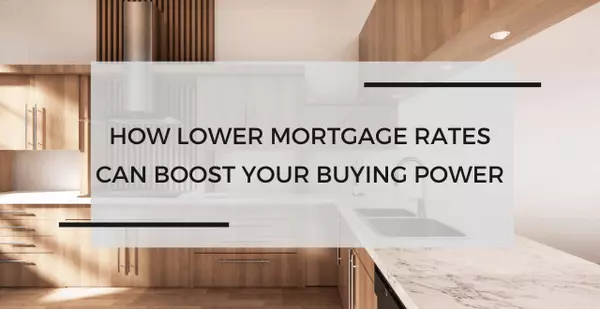
How Lower Mortgage Rates Can Boost Your Buying Power
If you’re in the market to buy a home, you’ve likely been paying close attention to mortgage rates. That’s because these rates play a pivotal role in determining how much house you can afford, directly impacting your purchasing power. Here’s what you need to know about the current landscape of mortgage rates and how they can help you achieve your homeownership dreams. What’s Happening with Current Mortgage Rates? Recently, mortgage rates have been on a downward trend, offering a promising outlook for prospective homebuyers. However, it’s important to understand that mortgage rates are influenced by a variety of economic factors, making them subject to change. Several key elements, including the overall economy, job market, inflation rates, and decisions made by the Federal Reserve, contribute to the fluctuation of mortgage rates. According to HousingWire, the current environment is showing signs of easing inflation, which could lead to further rate reductions: “As inflationary pressures continue to ease, and with the Federal Reserve signaling potential rate cuts in 2024, we may see mortgage rates decline further, offering more favorable conditions for homebuyers." While this is encouraging news, it's important to remember that mortgage rates can still experience volatility, often responding to new economic data as it becomes available. How Do Lower Mortgage Rates Affect Your Purchasing Power? When mortgage rates drop, your purchasing power increases—meaning you can afford a more expensive home without significantly increasing your monthly mortgage payment. Even a small reduction in the mortgage rate can have a substantial impact on how much you’ll pay over the life of your loan. For example, with a lower interest rate, more of your monthly payment goes toward the principal rather than interest, allowing you to either buy a larger home or reduce your monthly payments. Fannie Mae underscores the importance of understanding this relationship: “Lower mortgage rates not only reduce monthly payments but also expand the pool of affordable homes for buyers, giving them more options and flexibility in a competitive market. Consider the following scenario: If you’re comfortable with a $2,600 monthly mortgage payment, lower rates could allow you to afford a higher loan amount, enabling you to purchase a home that better fits your needs and desires. The chart below from the Home Price Expectations Survey highlights how different mortgage rates can influence your monthly payment and overall affordability: Understanding the dynamics between mortgage rates and buying power is essential in making the most informed and strategic decisions during your homebuying journey. How to Track Current Mortgage Rates Given that mortgage rates are constantly changing, staying updated can be challenging. However, having the right tools and resources at your disposal can make it easier to keep track of the latest trends. Real estate professionals, such as those at The Vince Caropreso Team, can provide you with the most up-to-date information, helping you understand how fluctuations in rates may affect your specific situation. U.S. News recommends working closely with a knowledgeable real estate agent who can help you navigate these changes: “A trusted real estate agent can be your best ally in monitoring mortgage rates and understanding their implications for your buying power. They have access to real-time data and can offer expert guidance tailored to your goals.” Additionally, utilizing online mortgage calculators and subscribing to rate alerts can help you stay informed and ready to act when the time is right. Bottom Line Lower mortgage rates are creating a unique opportunity for homebuyers to enhance their purchasing power and secure their dream homes. By staying informed and working with experienced professionals, you can make the most of these favorable conditions. At The Vince Caropreso Team, we’re here to assist you every step of the way, ensuring you have the knowledge and tools needed to navigate the current market. Contact us today to learn more about how we can help you achieve your homebuying goals.
Categories
Recent Posts

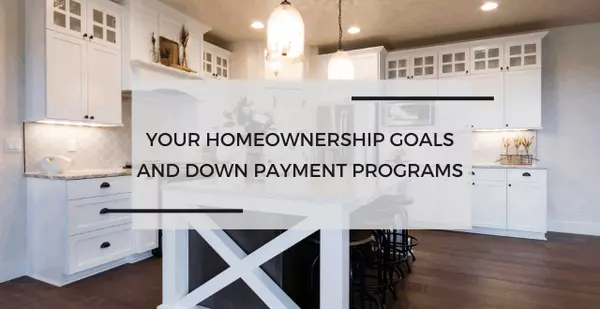


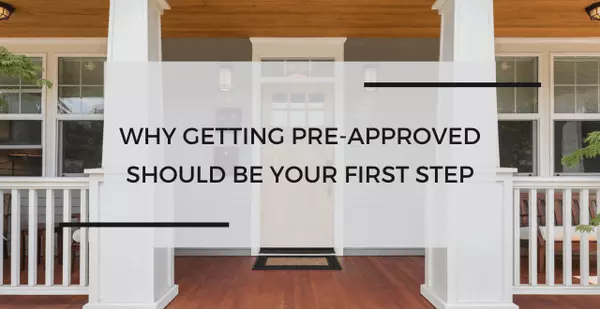
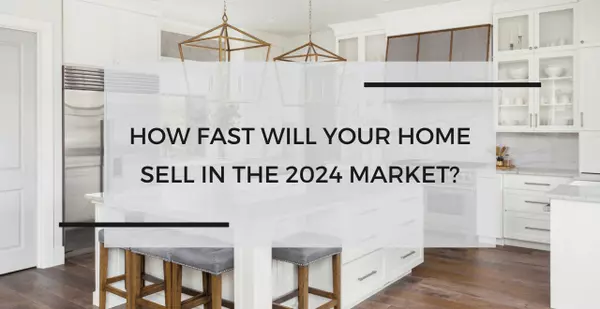
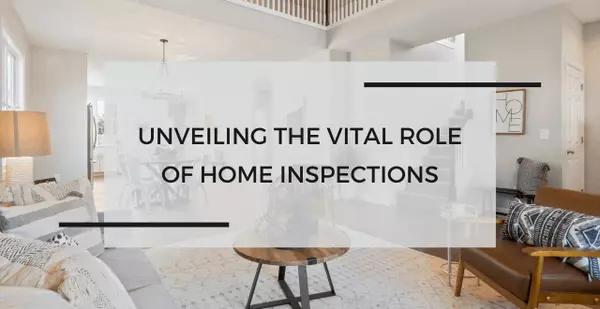
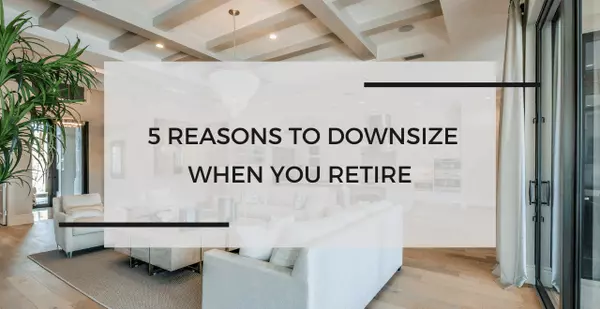
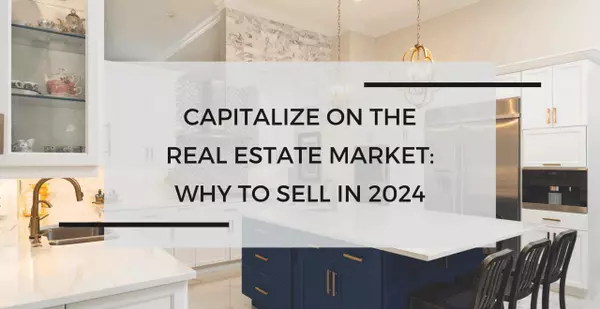
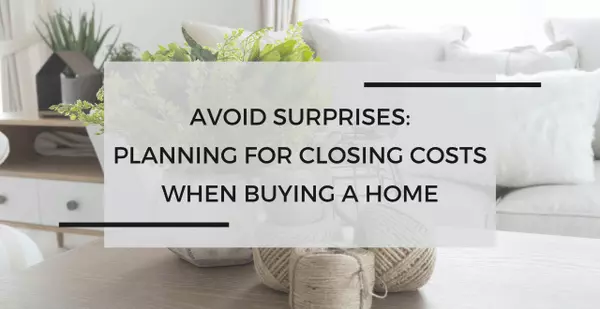

Prompt and professional service is our guarantee.
Our goal is to be informative and helpful. Through our service we hope to earn your business with our exemplary level of service and extensive local knowledge of the Central Maryland area.

